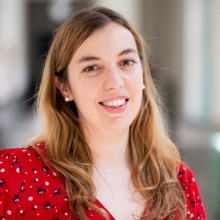On 26 and 27 May 2021, FAIRsFAIR organised the workshop “FAIR data competences in doctoral education programmes”. The event offered an opportunity for participants from universities across Europe to discuss the specific needs and challenges of Research Data Management (RDM) and FAIR competences and skills at the doctoral level, as well as share experiences about their practical adoption in doctoral education programmes.
The workshop was hosted by the University of Minho and the European University Association (EUA), with the support of the EUA Council for Doctoral Education. The event gathered 80 participants on the first day and 70 participants on the second day from all over Europe.
The first day focused on the needs and challenges of RDM and FAIR data competences at the doctoral level. Representatives of the FAIRsFAIR project kicked-off the day by sharing survey results on the implementation of FAIR data education in university programmes. Bregt Saenen (FAIRsFAIR and EUA) presented the current situation related to FAIR competences in doctoral education, drawing from the results of the FAIRsFAIR report “FAIR in European Higher Education”. Yuri Demchenko (FAIRsFAIR and University of Amsterdam) gave an overview of the analysis and steps behind the development of the “FAIR Competence Framework for Higher Education”. He also presented the ongoing discussion around the Data Stewardship Body of Knowledge, which will feed into the “FAIR Adoption Handbook for Universities” to be published by the project in December 2021.
The second day addressed how to sustainably integrate new types of skills and training for RDM and FAIR data in doctoral education programmes. Alexander Hasgall (EUA Council for Doctoral Education) opened the discussion, presenting an overview of the main developments within doctoral education in the last years and highlighting how data have gradually become more widely recognised as a relevant output of research. This, coupled with the growing attention to Open Science, is leading the way for FAIR data principles to gain more traction within doctoral education.
The implementation of FAIR practices nevertheless still has to be supported and more training activities are needed to develop the necessary skills and competences among researchers. To this aim, finding synergies with other training activities, such as existing training in research ethics and integrity, might be instrumental to further the advancement of FAIR training in doctoral education.
During both days, case studies were presented that showed how a diverse set of initiatives is currently being developed by universities, both in the context of institutional-driven plans and regional, national or EU funded projects, to tackle the skills and competences gap experienced by researchers in RDM and FAIR data. While initiatives of this kind are useful and needed, especially with the aim of addressing the lack of awareness among early-stage researchers, speakers agreed that more efforts should be taken in providing better targeted and discipline-specific training. It is however clear that universities cannot and should not do this alone. Training activities of this kind cannot exist in isolation but need to be anchored to a broader framework of policies, both within the institution and at the national and European level, that could support them and foster a more sustainable and long-term uptake of RMD and FAIR data competences.
The FAIRsFAIR project will organise two more university workshops in the autumn of 2021, together with the University of Amsterdam and University of Göttingen. Case studies discussed during the three workshops will feed into the FAIRsFAIR report “Good practices in FAIR competence education” to be published in December 2021.

